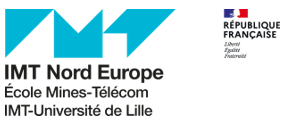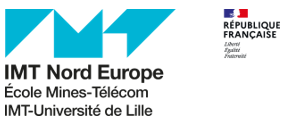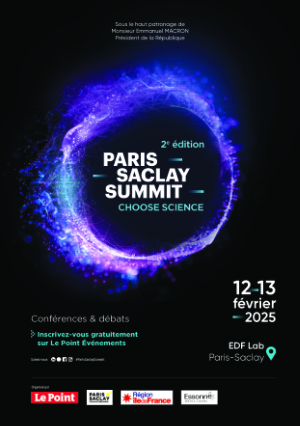Développer des identités positives dans les zones marginalisées par la renaissance des langues minoritaires // Developing positive identities of place in marginalised areas through the revival of minority languages
|
ABG-127333
ADUM-59903 |
Thesis topic | |
| 2024-12-03 |
Université de Savoie Mont-Blanc
CHAMBERY Cedex - France
Développer des identités positives dans les zones marginalisées par la renaissance des langues minoritaires // Developing positive identities of place in marginalised areas through the revival of minority languages
- Psychology, neurosciences
National populisme, langues minoritaires, placeisme, cosmopolitisme, zones marginales
National populism, minority languages, placeism, cosmopolitanism, marginal areas
National populism, minority languages, placeism, cosmopolitanism, marginal areas
Topic description
.
------------------------------------------------------------------------------------------------------------------------------------------------------------------------
------------------------------------------------------------------------------------------------------------------------------------------------------------------------
National populism is on the rise across the globe. This form of nationalism tends to foster an exclusive notion of territorial identity and to circumscribe citizenship to abstract membership of the nation state. It fosters a negative sense of ‘placeism' defined by Gillian Evans as ‘a fierce sense of territoriality and a social preoccupation with a hierarchy of born-and bred belonging [which] implie[s] a generalized suspicion of outsiders of all kinds'
. This sense of ‘placeism' appears to be particularly present in marginal areas that have
been described as ‘places that don't matter' who revolt against the status quo and embrace regressive nationalism
.This project explores how a more positive sense of ‘placeism' can be developed that embraces
cosmopolitanism and diversity. Following Raymond Williams who argued that a progressive nationalism can be built from the ground up through an inclusive ‘politics of place'
, it focuses on how the revival of minority languages might foster a sense of empowerment and positive narratives of belonging.
------------------------------------------------------------------------------------------------------------------------------------------------------------------------
------------------------------------------------------------------------------------------------------------------------------------------------------------------------
Début de la thèse : 01/10/2025
WEB : https://aap.univ-pau.fr/details?view=programme&cid=15
------------------------------------------------------------------------------------------------------------------------------------------------------------------------
------------------------------------------------------------------------------------------------------------------------------------------------------------------------
National populism is on the rise across the globe. This form of nationalism tends to foster an exclusive notion of territorial identity and to circumscribe citizenship to abstract membership of the nation state. It fosters a negative sense of ‘placeism' defined by Gillian Evans as ‘a fierce sense of territoriality and a social preoccupation with a hierarchy of born-and bred belonging [which] implie[s] a generalized suspicion of outsiders of all kinds'
. This sense of ‘placeism' appears to be particularly present in marginal areas that have
been described as ‘places that don't matter' who revolt against the status quo and embrace regressive nationalism
.This project explores how a more positive sense of ‘placeism' can be developed that embraces
cosmopolitanism and diversity. Following Raymond Williams who argued that a progressive nationalism can be built from the ground up through an inclusive ‘politics of place'
, it focuses on how the revival of minority languages might foster a sense of empowerment and positive narratives of belonging.
------------------------------------------------------------------------------------------------------------------------------------------------------------------------
------------------------------------------------------------------------------------------------------------------------------------------------------------------------
Début de la thèse : 01/10/2025
WEB : https://aap.univ-pau.fr/details?view=programme&cid=15
Funding category
Funding further details
Programmes de l'Union Européenne de financement de la recherche (ERC, ERASMUS)
Presentation of host institution and host laboratory
Université de Savoie Mont-Blanc
Institution awarding doctoral degree
Université de Savoie Mont-Blanc
Graduate school
633 Cultures Sociétés Territoires
Candidate's profile
.
The candidate must respect the following eligibility criteria to apply for the CHORAL program: Diploma: the candidate must be doctoral candidate, not already in possession of a doctoral degree at the deadline of the call. The candidate should be in possession or finalising of a Master's Degree enabling to do a PhD in Social Sciences, Arts, Architecture and Humanities applied to Cultural Heritage. Candidates currently completing their Master's degree during the academic year of the call must submit their marks and rankings as soon as they become available. Seniority: Any candidate in possession of the required diploma can apply regardless of the year of the obtention of the diploma. Mobility rule: Marie Curie Actions Rule: Researchers must not have resided or carried out their main activity (work, studies, etc) in the country of the recruiting entity for more than 12 months in the 36 months preceding the date of the call deadline. Compulsory national service, short stays such as holidays, and time spent as part of a procedure for obtaining refugee status under the Geneva Convention are not considered. Nationality: The call is open to researchers of any nationality. Language: Applicants whose first language is not English are required to provide proofs of proficiency of this required language skills, at least Cambridge First Certificate or equivalent. Number of applications: Possibility to apply to 3 PhD topics offered within a call for proposals. Formal proposal criteria: application submitted before the deadline (all required support documents must be submitted online via the call website), completeness of the application, application submitted in English. https://research.univ-unita.eu/en/choral-project/for-applicants.html https://research.univ-unita.eu/en/choral-project/phd-offers.html To apply https://aap.univ-pau.fr/details?view=programme&cid=15 For more details, please contact the choral support office at choral@univ-pau.fr
The candidate must respect the following eligibility criteria to apply for the CHORAL program: Diploma: the candidate must be doctoral candidate, not already in possession of a doctoral degree at the deadline of the call. The candidate should be in possession or finalising of a Master's Degree enabling to do a PhD in Social Sciences, Arts, Architecture and Humanities applied to Cultural Heritage. Candidates currently completing their Master's degree during the academic year of the call must submit their marks and rankings as soon as they become available. Seniority: Any candidate in possession of the required diploma can apply regardless of the year of the obtention of the diploma. Mobility rule: Marie Curie Actions Rule: Researchers must not have resided or carried out their main activity (work, studies, etc) in the country of the recruiting entity for more than 12 months in the 36 months preceding the date of the call deadline. Compulsory national service, short stays such as holidays, and time spent as part of a procedure for obtaining refugee status under the Geneva Convention are not considered. Nationality: The call is open to researchers of any nationality. Language: Applicants whose first language is not English are required to provide proofs of proficiency of this required language skills, at least Cambridge First Certificate or equivalent. Number of applications: Possibility to apply to 3 PhD topics offered within a call for proposals. Formal proposal criteria: application submitted before the deadline (all required support documents must be submitted online via the call website), completeness of the application, application submitted in English. https://research.univ-unita.eu/en/choral-project/for-applicants.html https://research.univ-unita.eu/en/choral-project/phd-offers.html To apply https://aap.univ-pau.fr/details?view=programme&cid=15 For more details, please contact the choral support office at choral@univ-pau.fr
2025-01-14
Apply
Close
Vous avez déjà un compte ?
Nouvel utilisateur ?
More information about ABG?
Get ABG’s monthly newsletters including news, job offers, grants & fellowships and a selection of relevant events…
Discover our members
 Institut Sup'biotech de Paris
Institut Sup'biotech de Paris  Généthon
Généthon  Ifremer
Ifremer  ONERA - The French Aerospace Lab
ONERA - The French Aerospace Lab  MabDesign
MabDesign  MabDesign
MabDesign  TotalEnergies
TotalEnergies  CASDEN
CASDEN  Groupe AFNOR - Association française de normalisation
Groupe AFNOR - Association française de normalisation  SUEZ
SUEZ  Aérocentre, Pôle d'excellence régional
Aérocentre, Pôle d'excellence régional  Tecknowmetrix
Tecknowmetrix  Institut de Radioprotection et de Sureté Nucléaire - IRSN - Siège
Institut de Radioprotection et de Sureté Nucléaire - IRSN - Siège  Nokia Bell Labs France
Nokia Bell Labs France  PhDOOC
PhDOOC  ANRT
ANRT  Laboratoire National de Métrologie et d'Essais - LNE
Laboratoire National de Métrologie et d'Essais - LNE  CESI
CESI  ADEME
ADEME
-
JobPermanentRef. ABG127643IMT Nord Europe- Les Hauts de France - France

Enseignante Chercheuse ou Enseignant Chercheur (Professeure ou Professeur) en Data/IA
Digital - Data science (storage, security, measurement, analysis) - TelecommunicationsConfirmed -
JobPermanentRef. ABG125662Association Bernard Gregory (ABG)Paris (3ème) - Ile-de-France - France

Responsable Recrutement, Relations Entreprises et Partenariats
Open to all scientific expertisesAny -
JobPermanentRef. ABG127640IMT Nord Europe- Les Hauts de France - France

CHARGEE/CHARGE DE RECHERCHE Génie et physique des matériaux polymères
Energy - Materials scienceConfirmed



